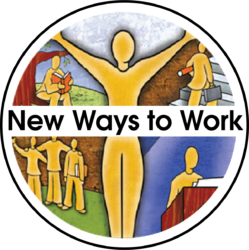Our Experience

Robert M. Sainz
President and Executive Director
With an unwavering commitment to advocating for vulnerable populations, Robert Sainz serves as the President and Executive Director of New Ways to Work, a nonprofit focusing on advocacy and technical assistance to improve workforce and education programs and systems. Serving young adults who often live in the shadows, the agency has an intense focus on those from foster, probation, and homeless systems. Having recently concluded a 30-year public sector career in the City and County of Los Angeles, Robert previously served as Assistant General Manager for the City of Los Angeles Economic Development Department where he managed over $70 million annually in public agency grant funds, resulting in programs and services for thousands of Angelenos.
Behind the glitz and glam that have become synonymous with the LA brand, Robert has a proven history of digging beyond the surface—tackling the most devastating social problems that face residents living in communities with diminished resources. Whether addressing juvenile delinquency, youth and adult unemployment, or youth disconnection from education and work, the LA native specializes in building coalitions and partnerships that maximize resources to produce quantifiable results.
Thanks to a clear vision for how to reengage young people, Robert established the City of Los Angeles YouthSource System, Los Angeles Performance Partnership Pilot (LAP3) and is a founding member of LA:RISE - an innovative model serving homeless and re-entry populations. He also established HIRE LA, one of the nation’s largest public-private youth employment initiatives that combined the visibility of corporate America with solutions designed by policy experts. As part of his extensive tenure with the second largest city in the nation, Robert also served as the Executive Director of the Los Angeles Youth Opportunity Movement and worked as the Assistant and Interim Executive Director of the City of Los Angeles Commission for Children, Youth and Their Families.
Never straying from a challenge, Robert began his career in the Los Angeles County Management Trainee Program in 1990 and later assumed the role of Probation Director leading the department’s Office of Community Relations and Office of Prevention Services. As a national voice on workforce development, Robert served as past President and Trustee in the US Conference of Mayor’s Workforce Development Council and as an advisory member for the National Dropout Prevention Council. He is also a board member of School & Main; Alliance for a Better Community; and cofounder of the Reconnecting LA’s Youth (RELAY) Institute at California State University, Northridge. Robert is married; father of three children, and grandfather of two.
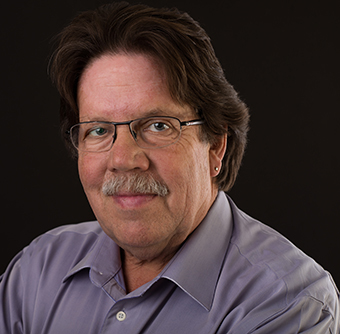
Steve Trippe
Senior Fellow
Steve Trippe has led New Ways in all of its youth initiatives and programs, as well as its consulting, training and technical assistance efforts since the mid 1980's. He also served as New Ways' principal author and editor of initiative guides, frameworks, toolkits and process tools. Welcoming long-time Board Member Robert Sainz as Executive Director in January of 2021, Steve now serves as a Senior Fellow to New Ways. He remains committed to the values vision and mission of the organization.
Steve is an accomplished facilitator, trainer, presenter, partnership developer and program designer. He is a seasoned veteran in youthwork, beginning his career as a direct service provider in San Francisco in 1975. He has had extensive direct service experience with the CYO of the Bay Area, the San Francisco Art Commission, and as a music teacher in the public schools.
Steve became President & Executive Director of New Ways in 1999 and transitioned to the role of Senior Fellow in 2021.
Steve has designed, launched and delivered a wide range of model programs and initiatives in his 35-year tenure with New Ways to Work, including:
- Community Systems Building: the School-to-Work Intermediary Project, the National Intermediary Network, Iowa Intermediary Development, New York City Intermediary Development, Pennsylvania Regional Career Education Partnership Councils.
- Career Development and Education Initiatives: Diploma Plus, Communities and Schools for Career Success, California School-to-Career support activities, California Health Careers Academy; youth employment support, convening local partnerships, after-school for older youth.
- Quality Work-Based Learning Initiatives and Toolkit Development: including toolkits developed for: the State of California School-to-Work Council; the Kansas City, Kansas public Schools; The New York City Department of Education, the New York City NYC Department of Youth and Community Development and the Workforce Professionals Training Institute; Earn & Learn East Bay, Contra Costa County Office of Education and the Contra Costa County Workforce Development Board; New York State P-TECH, and he Public Policy Institute of New York; Los Angeles Orange County Regional Consortium.
- Youth Workforce Development Initiatives: Youth Ecology Corps, the California Youth Council Institute, the National Youth Council Institute, California Workforce Investment Board and State Youth Council technical assistance and facilitation, Youth Opportunity Grantee technical assistance, and direct technical assistance to Workforce Boards and Youth Councils, New Ways Workers, and WorkPlus.
- Targeted Youth Initiatives: Youth at the Crossroads, Foster Youth Transition to Employment, the Foster Youth Transition Action Team Initiative, Improving Transition Outcomes for Youth with Disabilities, the San Francisco Mayor’s Transitional Youth Task Force, Santa Rosa Mayor’s Gang Prevention Task Force.
Steve is a nationally recognized expert in youth employment policy and practice and is a seasoned veteran in youthwork. Steve is the principal designer of New Ways’ All Youth – One System approach, and has been involved with youth employment, career development, and education policy and implementation on the national, state and local levels.
Steve has planned and delivered annual strategic planning institutes and forums for the National Intermediary Network, executed the landmark Youth at the Crossroads conference in Los Angeles, focused on bridging education, workforce, child welfare and juvenile services to support youth participating in extended foster care in California (AB 12), the National Innovation Symposium focused on addressing the needs of out-of-work and out-of-school youth and young adults, two state-wide forums on foster youth transition strategies in California and a Crossroads Conference focused on developing policy recommendations for the Early Care and Education workforce in Los Angeles.
In addition to his work at New Ways, Steve has been active in the policy arena, serving as the treasurer of the National Foster Care Coalition for nearly a decade, and as co-chairman of the California Foster Youth Career Development and Employment Task Force. He also served on the Leadership Team for California’s Breakthrough Series Collaborative on Independent Living Program Transformation and is a former member of the National School-to-Work Advisory Council. Steve is a member of the National Mentoring Partnership and the National Child Labor Council, and past chair of the National Youth Employment Coalition. He also served on California’s National Governors’ Association “Home Team” on Foster Youth Transition and co-chaired its employment subcommittee. At home, he has served as a member of the Sonoma County Economic Development Board and the Russian River Redevelopment Planning Committee, and is a past president of the Monte Rio Union School District.
Currently Steve provides direct support to the Sonoma County Youth Ecology Corps and Career Pathway Program, the New York City Department of Education, Los Angeles Orange County Regional Consortium, the Workforce Professionals Training Institute and JobsFirst New York City.
- Editor and Author, “NYC DOE CTE Work-Based Learning Toolkit”
- Editor and Author, “Earn & Learn East Bay Work-Based Learning Toolset”
- Editor and Author, “NYC Youth and Young Adult Career Pathways Work-Based Learning Toolkit”
- Editor and Author, “NYS P-TECH Work-Based Learning Toolkit”
- Member, Roseland University Prep Board of Advisors
- Past Treasurer, National Foster Care Coalition
- Past Member, California National Governor’s Association Policy Academy on Transitioning Foster Youth
- Past Co-Chair, California Foster Youth Employment Task Force
- Past Co-Chair, NGA Policy Academy on Transitional Foster Youth Employment Sub-committee
- Author, “Youth Transition Action Team Guidebook”
- Founding Member, Youth Policy Action Center Executive Steering Committee
- Founding Partner: The Bay Area School to Career Action Network
- Past Member, California Little Hoover Commission Human Services Redesign Committee
- Past Member, Sonoma County Economic Development Board
- Past Chairman, National Youth Employment Coalition
- Past School Board President, Monte Rio Union School District
- Former Member, National School to Work Advisory Council
- Former Member, Sonoma County Redevelopment Commission
- Former Board Member, West County Community Services
- STC Task Force Member, Bay Area School Reform Collaborative
- Designer and Developer, “All Youth-One System” frameworks
- Co-author, “The Flexible Workplace, Implications for State Employment Policy”.
- Executive Consultant, “The Community Compact in California” (video)
- Author, “Developing Community Compacts”, Roles for Private Industry Councils
- Author, Developing Strategic Part-Time Employment for Populations in Transition”,
- Co-author, “Opening Doors”, Part-Time Employment Strategies for Youth
- Co-Author, “The Intermediary Guidebook: Making and Managing Community Connections”
- Co-Author, “The YCi Guidebook”, New Ways to Work and the California Workforce Association
- Member, National Society for Internships and Experiential Education
- Co-Author: California Work-Based Learning Toolkit
- Co-Author: Kansas City Work-Based Learning Toolkit
- Past Vice President, Antioch College Alumni Association Board
- Member, Partnership for Training and Employment Careers
- Member, National Youth Professionals Institute
- Member, California School Boards Association
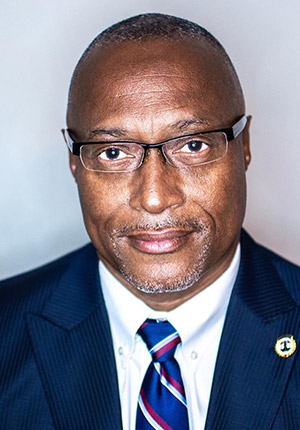
Tommie Baines
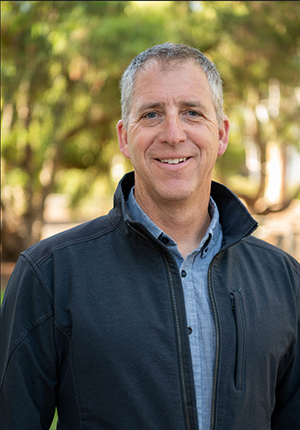
Jamie Bettencourt
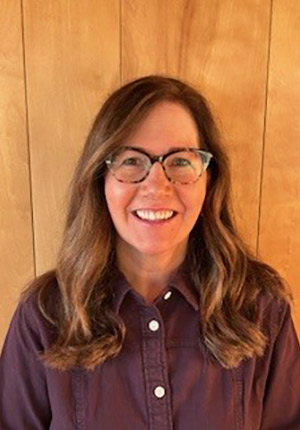
Denae Boggs, MA, LMFT

Gregory Burks, Ph.D.
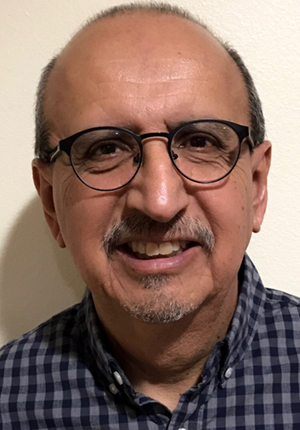
Manuel Chavez
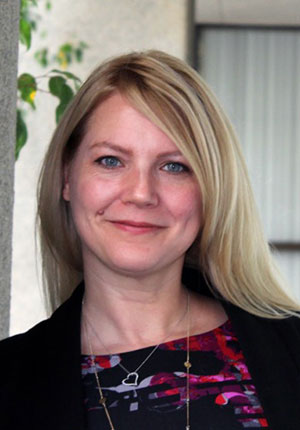
Lauri Collier
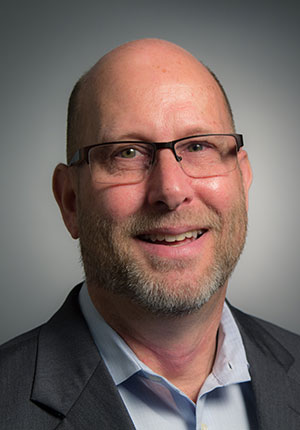
Glenn Eagleson

Shawn Evangelista
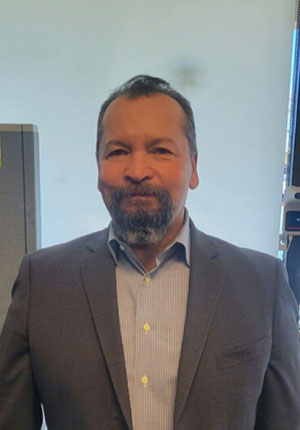
Ruben Gonzales

Joe Herrity
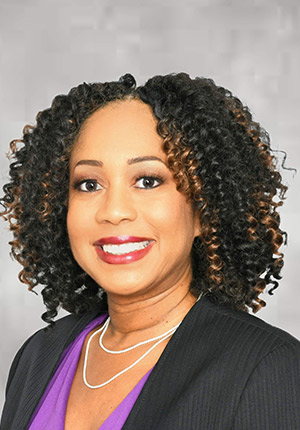
Lisa Morris Hibbler, D.P.A.
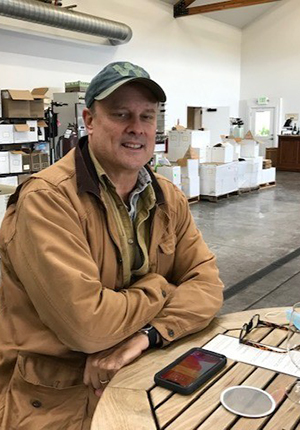
Charles Hiteshew
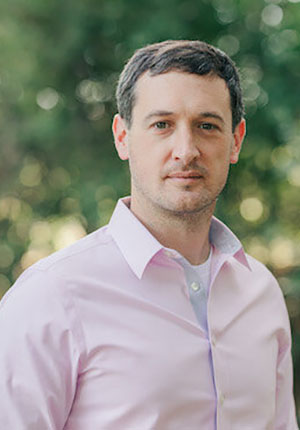
Sean Hughes
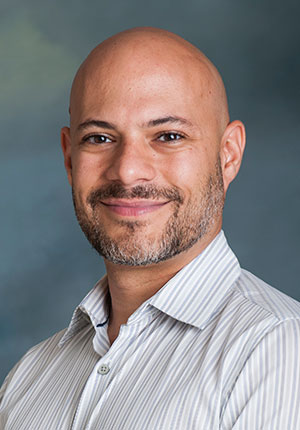
Ari Malka, Ph.D.
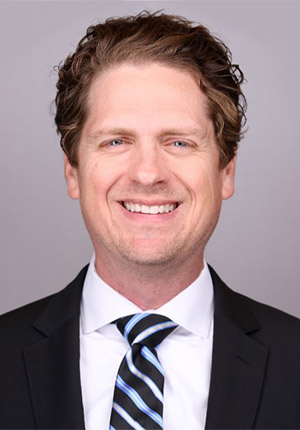
Grant McCandless
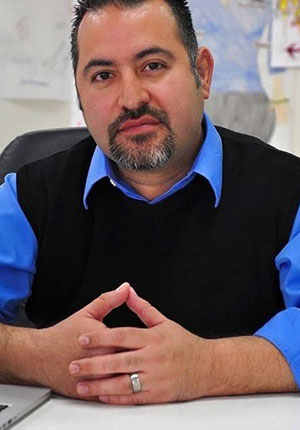
Rogelio Medina
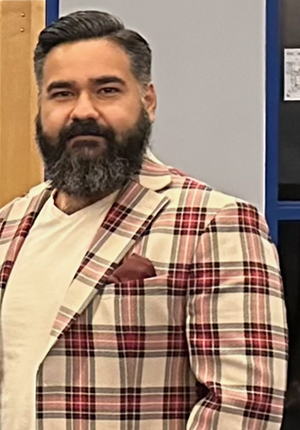
Jesse Miramontes
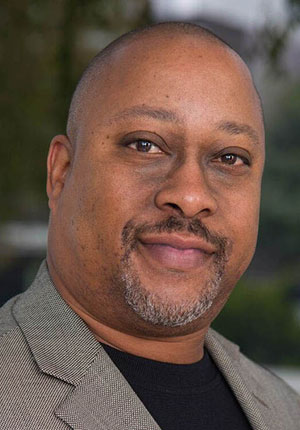
Eric Moore

Farrah Parker

Heidi Peyser, MA
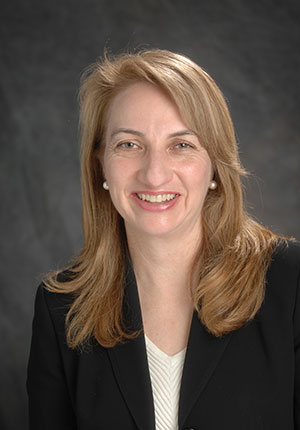
Laura C. Romero

Alyssa Rubal
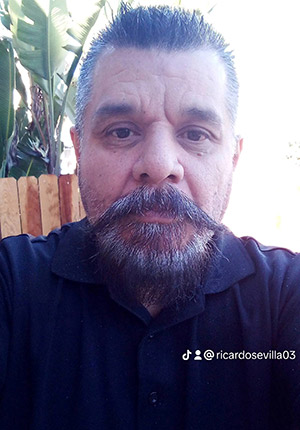
Ricardo Sevilla
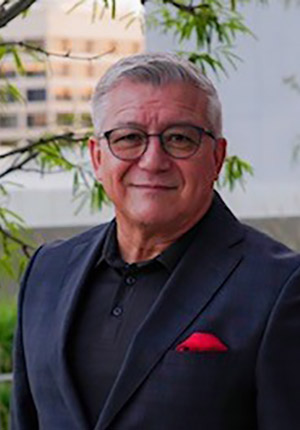
Otto Solorzano
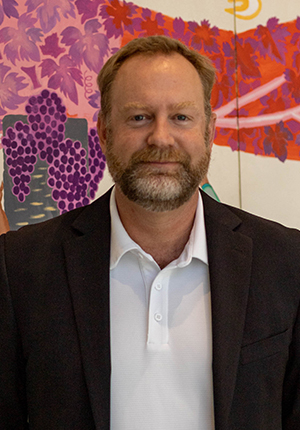
Joseph Stark

Tamika Taylor

Karen Vega

Helen Whitcher
No Results Found
New Ways Partners With COYN
New Ways to Work collaborates with local practitioners and system providers to improve practice and provide critical information and knowledge to national, state and local policy leaders on innovations and practices to improve the delivery of workforce, career readiness and support services for the emerging workforce.
New Ways to Work is proud to announce a new alliance with The California Opportunity Youth Network (COYN) to help build the capacity of local community-based organizations and state-wide and regional networks to support the development of academic and career pathways for economically vulnerable young people (16-24) , especially youth and young adults who are involved with the foster care, juvenile justice and homeless systems and are disconnected or at risk of experiencing school and work disconnection. The COYN member sites partner with the Aspen Institute Forum for Community Solutions and share lessons learned, quality practices and collateral materials across the Opportunity Youth Forum Communities.
COYN is an advocacy-intermediary network that bridges the gap between ground-level communities and service providers and state-level policymakers to achieve statewide, systems-level change in education and workforce. COYN’s membership consists of local organizations and operational intermediaries working to leverage services across systems to benefit youth and young adults across the state of California, in both rural and urban communities.
Through this new alliance, these organizations and their partners will leverage their collective expertise to develop core practice models designed to increase the capacity of local organizations and networks to successfully navigate multiple systems to ensure that youth are able to access the high-quality programs, services and opportunities they need to gain their footing in the post Covid-19 recovery.
COYN, New Ways, and Aspen will all collectively advocate for innovative reform strategies that can be implemented at the system level across the workforce, K-12 and postsecondary education, social service, juvenile justice, health and housing systems to improve cross-system coordination and eliminate barriers that young people are currently experiencing.
For more Information on COYN: please contact Sean Hughes: Sean_hughes@caloyn.org or check the COYN website.
Additional Partners
New Ways to Work has been a leader in addressing workplace issues since our founding in 1972. Beginning with the invention, promotion, and definition of job sharing as a way to help women and others balance work with the rest of their lives, we spent thirty years pioneering work-time alternatives — flex-time, telecommuting, and phased retirement to name a few — now all common practices in workplaces around the world. In the early 1980s, our focus expanded to apply our workplace strategies to provide better access to high-quality employment opportunities for youth enrolled in school or training programs.
For the past four decades, New Ways has been at the center of efforts to improve the way our public systems and local programs prepare our young people for their futures. Young people need better opportunities, both in and out of school, to gain the knowledge and skills critical for success in college and career. New Ways helps communities work together to build comprehensive youth-serving systems.
1980 - 1989
- New Ways Workers Network
- The Quality Work-Based Learning Initiative
1990 - 1999
- Bay Area School-to-Career Action Network
- Northern California School-to-Career Practitioners Network
- CalSCAN (the California School-to-Career Action Network)
- School-to-Work Intermediary Project
- CS2 (Communities and Schools for Career Success)
2000 - 2005
- Employer and Labor Engagement, Work-Based Learning Tool-Kit
- Youth Opportunity Grantees
- YCI (Youth Council Institute)
- All Youth – One System frameworks
- Intermediary Network
- The School Executive Leadership Initiative
- The Quality Work-Based Learning Initiative
- YTAT (Youth Transition Action Team Initiative)
- Improving Transition Outcomes for Youth with Disabilities Project
- Diploma Plus
2006 - 2011
- YTAT (Youth Transition Action Team Initiative)
- Improving Transition Outcomes for Youth with Disabilities Project
- Diploma Plus
- Statewide Foster Youth Transition Policy Forum
- Intermediary Network
- SCYEC (Sonoma County Youth Ecology Corps)
- BSC-ILP (Breakthrough Series Collaborative on Independent Living Program Redesign)
- Foster Youth Pathways to Employment Initiative
- Chicago Workforce Investment Board
2012 - The Present
- Youth At The Crossroads Conference
- Intermediary Network
- Sonoma County Youth Ecology Corps
- Santa Rosa Mayor’s Gang Task Force
- Contra Costa Workforce Development Board and Youth Council
- Earn & Learn East Bay
- Jewish Vocational Services Los Angeles
- Peralta Community College District (Career Pathways)
- Public Policy Institute of New York State – PTECH
- Los Angeles Universal Pre School
- Youth Ecology Corps Network Sites
- Diablo Gateways to Innovation (Career Pathways Trust)
- Contra Costa County School District (Career Pathways Trust)
- New York City Department of Education (CTE WBL Toolkit)
- Jobs First New York City (Transfer 2 Careers Collaborative)
- Workforce Professionals Training Institute (Mentored Internship program)
- Artworx LA (Career Pathways Development)
- Los Angeles/Orange County Regional Consortia (WBL Resource Center)
- EarnLearn.us (WBL Toolkit Upgrades)
Initiatives Detail
In the early 1980s, beginning with the development and refinement of the New Ways Workers model in San Francisco, New Ways launched a network of youth employment brokering sites that grew to 14 communities in the New Ways Workers Network. Host entities, in partnership with local schools and youth-serving organizations, included community-based organizations, chambers of commerce, local governments, and Private Industry Councils. New Ways developed a “turn-key” approach to local system-building that connected schools with workplaces and employers with classrooms. New Ways provided network members with customized management software, detailed operational procedures, sophisticated marketing approaches, templates for all materials, regular training opportunities for program staff, on line and telephone technical support, and regular opportunities for sharing information and ideas with other program sites.
Since the late 1980s, New Ways has also designed systems and developed tools, materials, and trainings that help practitioners engage workplace and community partners and provide high-quality, work-based learning experiences to support student learning. These efforts are known as The Quality Work-Based Learning Initiative.
In the early 1990s, with the advent of School-to-Work New Ways became a founding partner of the Bay Area School-to-Career Action Network and facilitated the Northern California School-to-Career Practitioners Network, an informal association of schools, community organizations, School-to-Work partnerships, technical assistance providers, and employer associations. These efforts served to launch CalSCAN (the California School-to-Career Action Network), a statewide association of partnerships facilitated by New Ways.
In 1997, New Ways Workers piloted an institute and training series with teams from 13 California STW partnerships on “Developing a Sustainable Infrastructure, Making and Managing the Employer Connection.” As part of this effort, New Ways modified and created a workbook of systems planning and process tools, content-focused trainings and fact sheets, and implementation materials to help communities develop local STW partnerships.
In 1998, New Ways and Jobs for the Future joined with other national partners to implement the School-to-Work Intermediary Project, funded by the National School-to-Work office. This project promoted and strengthened intermediary practice and publicized the increasingly important role played by local intermediary organizations in improving education and supporting workforce and economic development in communities across the country.
In 1999, New Ways was selected by the California Department of Education to serve as the statewide capacity-building organization for Communities and Schools for Career Success in California. The project was conducted in partnership with the Commonwealth Corporation of Massachusetts, the California Department of Education, and the California Workforce Investment Board. New Ways supported the project with on-site coaching, technical assistance and training to four California communities. Commonly referred to as CS2 , the project focused on bringing together community resources to assist youth in the transition from middle school to high school, and from high school to further education and training or career-laddered, entry-level employment.
In 2000, the California School-to-Career Inter-Agency Partners selected New Ways and a set of partners to conduct the Employer and Labor Engagement, Work-Based Learning Tool-Kit Project. Along with its partners, New Ways developed a range of tools, materials, and capacity-building and training activities designed to increase employer and labor participation in School-to-Career initiatives, as well as tools and strategies to provide safe and legal, quality work-based learning opportunities.
In 2000, New Ways was identified by the U.S. Department of Labor’s Office of Youth Services to coach seven Youth Opportunity Grantees in effective start-up and implementation of youth opportunity centers in the western states. Through this contract, New Ways staff and consultants provided on-the-ground technical assistance and training to newly developing, full-service youth centers in a number of cities, including three in California. New Ways supported the Office of Youth Services directly, adapting tools and materials to meet the needs of the YOG’s around the country. New Ways designed the framework for all sites’ initial work plans and the assessment utilized to measure their progress in the first year of implementation. New Ways also provided training and was responsible for the Employer Engagement track at the first annual gathering of the Youth Opportunity Grantees.
In 2001, New Ways received funding from the California Workforce Investment Board to partner with the California Workforce Association (CWA) to develop the California Youth Council Institute. Through this project, New Ways and CWA built and supported a network of Youth Councils across the state focused on building comprehensive, locally driven youth systems. Representatives of each of California’s 50 Youth Councils participated in one or more institute activities between 2001 and 2005. New Ways developed a set of tools and materials designed to support Youth Councils that seek to serve as a catalyst in developing comprehensive local youth development systems in their communities. Known as the All Youth – One System frameworks, this set of process, content, and planning tools serve to strategically support the efforts of local Youth Councils to be catalytic forces in their communities, building comprehensive and connected systems that serve all youth, especially those who are most in need of support. As a result of the Youth Council Institute, New Ways has provided follow-up technical assistance to many local Youth Councils across California as well as providing advice and support to other states.
In 2002, New Ways provided direct technical assistance to the California State Youth Council, which adopted the All Youth – One System frameworks. New Ways also received the 2002 Architect of Change, Innovation in Customer Service Award for the California Youth Council Institute from the National Association of State Workforce Agencies and the U.S. Department of Labor.
In 2003, participants in the federally funded School-to-Work Intermediary Project found their connections to be so valuable that they decided to create a self-funded network to sustain their work together beyond the funded activities of the project. They selected New Ways as the facilitating partner of the resulting Intermediary Network. New Ways served as the facilitating partner of this national association of leading education, workforce, and youth development organizations working in local communities to ensure youth success for nearly a decade. Network members connect schools, communities, government agencies, philanthropy, workplace partners, and youth organizations to improve outcomes for youth and help build the future workforce. Practice Communities within the network focused on serving out-of-school youth, youth development and after-school initiatives, engaging workplace partners, and improving high schools. The INet continues today as a small self-managed network of local and national affiliate intermediaries.
New Ways and its partner, the Bay Area Council, also supported The School Executive Leadership Initiative which sought to improve low-performing schools by focusing on increasing the management and leadership skills of school leaders (primarily principals) and connecting them to private sector executives serving as coaches and resource brokers. School leaders were paired with private sector partners to support school improvement efforts and link principals with private sector resources. Quarterly learning academies brought schools and business leaders together to focus on high-need issues identified by the participating principals.
The Quality Work-Based Learning Initiative was active in a number of arenas during the early 2000s. Utilizing tools and frameworks developed for the state, New Ways facilitated several training and strategic planning sessions for more than 400 educators and youth practitioners in California during 2003. 7,431 downloads were made of work-based learning tools and materials from the New Ways website. In addition, New Ways helped the Kansas City, Kansas Public Schools link work-based learning to local academic standards. This work was supported with the implementation of the new toolkit developed by New Ways for the Kansas City Kansas schools and launched in 2003-04 school year. New Ways wok-based learning activities were evaluated by Brandeis University, receiving high marks for the quality of the tools, training, and support activities provided through the initiative.
In 2004 New Ways helped design and facilitate two new transition-assistance initiatives in California: the Youth Transition Action Team Initiative, focused on working with child welfare agencies, workforce boards, and others to ensure successful transitions for foster youth, and the Improving Transition Outcomes for Youth with Disabilities Project, seeking to demonstrate how local intermediaries can help youth with disabilities make successful transitions to the workforce and independent living. In both cases, New Ways convened key stakeholders and helped them articulate goals and implementation strategies. New Ways also provides ongoing support and technical assistance.
In 2005. New Ways began full implementation of the Youth Transition Action Team Initiative – eventually growing to engage 18 counties in the state – and the Improving Transition Outcomes for Youth with Disabilities Project, through which New Ways piloted activities in Shasta, Ventura, and San Francisco Counties. New Ways was also selected to coordinate the expansion of the Diploma Plus initiative into California. Diploma Plus was designed not only to help those young people who are being left behind by our educational system graduate, but to be ready to successfully transition to college and careers. New Ways also began expanding the scope of the Youth Council Institute beyond California to reach a national audience of state and local Youth Councils in order to help even more Youth Councils improve their practice and apply the lessons from the California Initiative.
From 2006 to 2009, New Ways expanded the Youth Transition Action Team Initiative and its work to improve outcomes for transitional foster youth. In addition to providing direct support to 18 counties in California, New Ways compiled and disseminated quality practices from around the country, provided regular trainings and workshops in both Northern and Southern California, and hosted a statewide foster youth transition policy forum in Sacramento that engaged 395 stakeholders from 44 counties to develop policy recommendations for the Senate Foster Youth Task Force. New Ways also fully implemented the expansion of Diploma Plus in California, assisting in codifying the model, developing frameworks to support implementation, and supporting the development of performance-based high schools in five California Communities.
In 2009, New Ways convened a coalition of groups in Sonoma County, California to design and launch the Sonoma County Youth Ecology Corps. The groups convened included the Sonoma County Workforce Investment Board, the Sonoma County Human Services Department, the Sonoma County Water Agency, the Sonoma County Office of Education, over 60 project hosts, and six community-based youth agencies. The design of the corps built on interests from the Water Agency in employing crews of young people through its stream maintenance program and the opportunity to leverage American Recovery and Reinvestment Act funds allocated for summer jobs in the county. The resulting Sonoma County Youth Ecology Corps (SCYEC) is a jobs, workforce training, and ecosystem education program that provides youth and young adults with meaningful employment while teaching them about conservation and environmental stewardship. Crewmembers ages 14 – 24 complete needed environmental projects and make a difference in their community. The SCYEC provides youth and young adults paychecks, valuable work experience, environmental education, and the opportunity to contribute to their community through ongoing outdoor experiences. New Ways was responsible for the initial program design and implementation of the SCYEC, guiding its program development and implementation, and documenting its success.
From 2009-2011, New Ways worked with the Child and Family Policy Institute of California to design and implement the Breakthrough Series Collaborative on Independent Living Program Redesign. The project engaged multi-disciplinary teams from 12 California counties in rethinking how ILP resources and program offerings could be utilized to better prepare youth for transition to adulthood. New Ways launched the Foster Youth Pathways to Employment Initiative leveraging the Youth Transition Action Team experience through focused efforts on connecting youth to summer jobs and career development programs in high schools. New Ways hosted two statewide forums focused on sharing quality practice and developing policy recommendations to improve the career trajectories of transitioning foster youth. New Ways also conducted continued to support the Intermediary Network and Sonoma County Youth Ecology Corps. New Ways also provided assistance to the City of Chicago in the transition of Workforce Investment Act youth programs and developing program quality improvements in the Department of Family Support Services Out of School Time Initiatives. New Ways also provided consultant support in and the implementation of a city-wide, coordinated summer jobs effort, and conducted an impact assessment and analysis of the city’s Youth Career Development Center and Regional Consortia Coordinators initiatives.
In 2012, New Ways designed and delivered the Youth at the Crossroads conference, a statewide forum held in Los Angeles focused on developing strategies to support foster youth electing to participate in extended care, authorized through the implementation of the Fostering Connections and Early Adoptions Act in California. This two-day conference, was designed and facilitated by New Ways to Work and sponsored by the City and County of Los Angeles Workforce Investment Boards, the San Diego Workforce Partnership, the Riverside County Workforce Investment Board, and the City of Los Angeles Community Development Department. The primary purpose of the meeting was to encourage departments and agencies to work together and leverage each other’s services to better assist youth who choose to stay in foster care beyond the age of 18. Two hundred and seventy attendees representing counties across the state – with representation spanning from Sacramento to the Bay Area to San Diego – gathered to focus on the implementation of extended foster care in California. Child Welfare and Workforce agencies throughout California met to honestly evaluate current practices and uncover ways to move forward with a new outlook on effectively serving foster youth, especially focused on older youth in care. New Ways also supported the Intermediary Network members in the 10 th anniversary spring institute, and helped support a transition to a member-facilitated network. Work also continued with the Youth Ecology Corps partners in the areas of ongoing program development, capacity building, sustainability, evaluation, and program expansion and replication and with local Youth Councils, through the provision of direct technical assistance and program support.
In 2013-14, New Ways assisted the Santa Rosa Mayor’s Gang Task Force in redefining its strategic plan and logic model, creating a new set of desired outcomes for the initiative and addressing effectiveness concerns expressed by some city council members. We also helped support staff and leadership, aided in the transition to a new director, and helped plan for county-wide expansion. We also began work with the Contra Costa County Workforce Development Board and Youth Council. providing significant consulting and technical assistance to the CCWDB and the youth team on implementation of high-quality youth programs under WIOA, as well as the development of a new strategic plan, Youth Council Charter, RFP development and youth provider selection. Work continued with the Youth Ecology Corps in Sonoma and Riverside Counties. We also supported Jewish Vocational Services in Los Angeles in the design of a city-wide initiative designed to improve outcomes for youth in the foster care system.
In 2015-17 work with the Youth Ecology Corps focused on supporting ongoing implementation of the YEC program in Sonoma and Riverside counties providing assistance in program design and implementation, communications, expanding the base of investing project hosts, partner convening, legislative issues, evaluation design support and documentation. New Ways also convened task force calls and an annual meeting of YECs in Portland, OR, and Sonoma, Marin, Napa, Contra Costa and Riverside counties. Work with the Contra Costa County Workforce Development Board expanding work with staff and the youth council to focus on collaboration and integration with regional Career Pathway efforts, and local systems activities.
Working with The Public Policy Institute of New York, New York State P-TECH, Earn and Learn East Bay, Peralta Colleges-East Bay Career Pathway Trust, Contra Costa Community Colleges, and the Workforce Professionals Training Institute in NYC, New Ways expanded the development of Work-Based Learning Toolkits and materials designed to support high-quality work-based learning and effective employer engagement, provided coaching and training for staff, facilitated design and implementation meetings, and worked with leadership on systems and sustainability approaches across communities and investment streams. to Innovation New Ways provided technical assistance and training to Peralta Colleges – East Bay Career Pathway Trust, Contra Costa County Office of Education – Diablo Gateways to Innovation on intermediary capacity-building for these two county-wide collaborations of community colleges, K-12 districts, workforce boards and chambers of commerce, aligning efforts and approaches across a two-county region. working with the same set of partners, New Ways also focused on Career Pathways implementation with leadership through strategic plan development and implementation, systems and sustainability approaches across communities and investment streams. New Ways also provided oversight and advice to funded workforce intermediaries, Working with Los Angeles Universal Pre-School, the Workforce Development Board of Los Angeles and other area Workforce Boards. New Ways designed and facilitated a Crossroads Conference focused on the early care and education workforce, and produced a white paper/call to action based on the meeting results
In 2017-18 work with the Youth Ecology Corps continued, focused on program design and implementation, communications, expanding the base of investing project hosts, partner convening, legislative issues, evaluation design support and documentation. In Sonoma County, New Ways supported the implementation of a new Career Pathways Program component that provides year-round opportunities for older youth and young adults, including an internship with the Water Agency, Regional Parks or County General Services. The pathways model is designed to help youth and young adults explore and prepare for careers with the county. New Ways created support materials and provided professional development and training to partners and team members. The initiative leverages workforce and other social service investments with public works dollars to provide youth and young adults employment experience in the ecological and conservation-related field. Through the Quality Work-Based Learning initiative, New Ways worked with the New York City Department of Education, New York City Department of Youth and Community Development and the Workforce Professionals Training Institute to complete five Work-Based Learning toolkits and materials to support high-quality work-based learning for students in Career and Technical Education programs and in the workforce development system. In addition, New Ways created a toolkit designed to help organizations and individuals increase their employer engagement capacity, provided upgrades to the NYC DOE WBL on-line toolkit, and laid the groundwork for a new on-line WBL toolkit for a consortia of community colleges in Los Angeles. New Ways supported the Workforce Professionals Training Institute and the Pinkerton Foundation in the design and start-up of a Mentored Internship program for Foster Youth in New York City. The initiative, launched in January of 2018, engages 8 foster care agencies and served approximately 200 youth and young adults. New Ways assisted in program design, developed planning tools and frameworks and provided staff development and training to the project partners. New Ways also supported artworxLA, a nonprofit organization charged with combating the high school dropout crisis by creatively designing an arts-infused educational pathway program leading to careers in the creative industries in alternative school settings. New Ways provided strategic planning and program design services related to developing Career Pathways in the arts and created a framework for program implementation. New Ways also provided technical assistance to JobsFirst New York City and New Visions for Public Schools in the design and early implementation of an initiative titled “Re-Imagining the School-to-Work Experience for New York City Transfer High School Students”. The initiative is designed to embed career development activities in 12 of the city’s transfer high schools focused on serving over-age and under credited students. New Ways provided coaching, training, meeting design and facilitation services, framework development and field research into quality practices for application in the schools.
